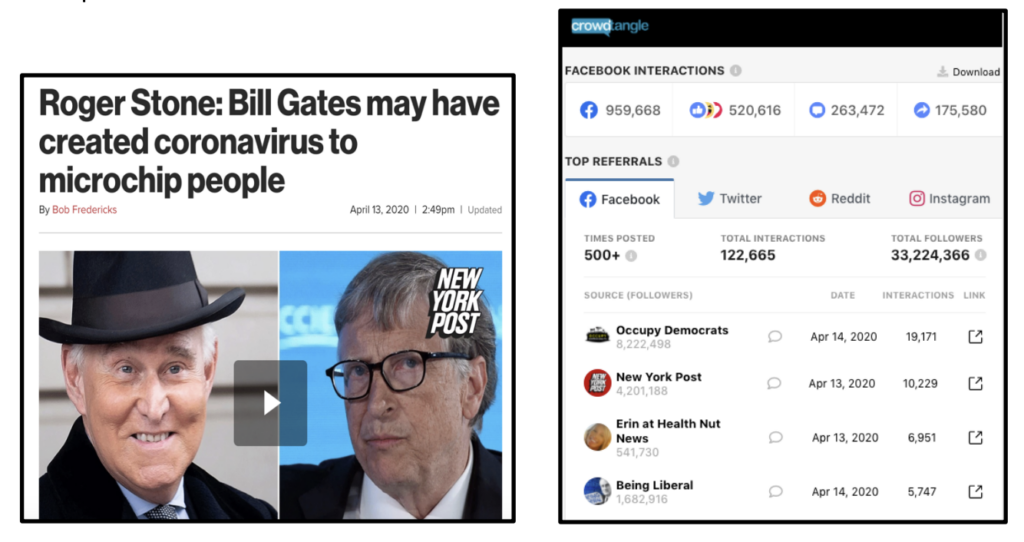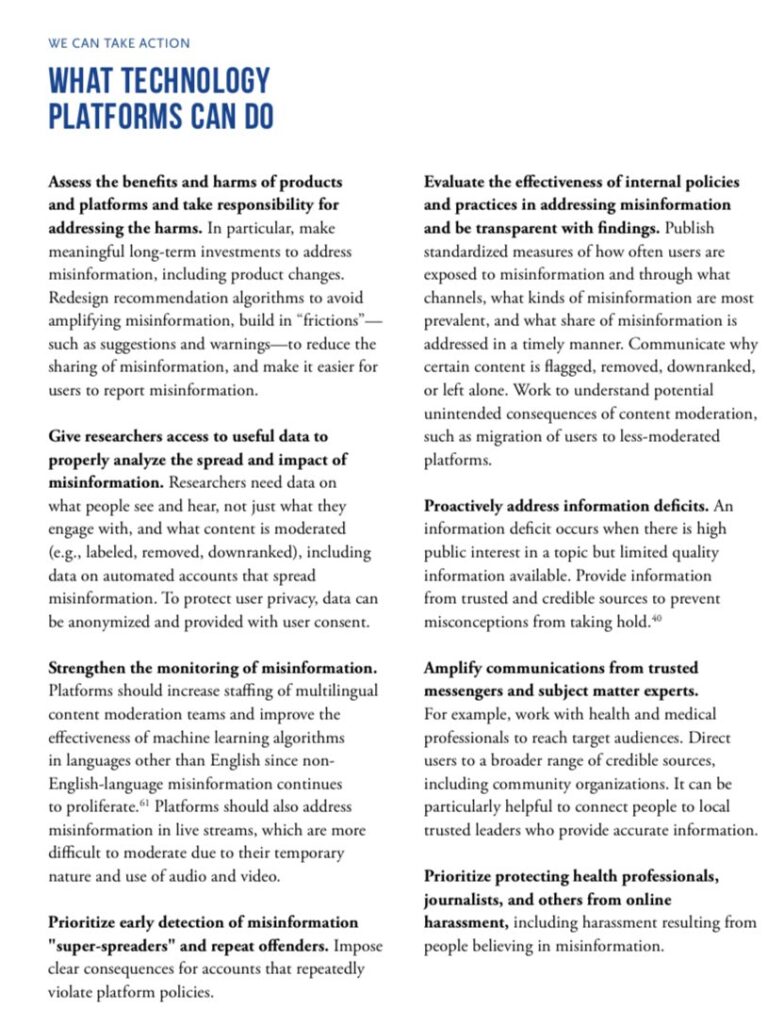Surgeon general issues warning about health misinformation
Justin Hendrix / Jul 15, 2021U.S. Surgeon General Dr. Vivek Murthy today issued a warning to the American public about the urgent threat of health misinformation, identifying product features and algorithms on social media platforms as a key vulnerability in the information environment.
"Health misinformation is an urgent threat to public health. It can cause confusion, sow mistrust, and undermine public health efforts, including our ongoing work to end the COVID-19 pandemic," said Dr. Murthy in a press release. "As Surgeon General, my job is to help people stay safe and healthy, and without limiting the spread of health misinformation, American lives are at risk. From the tech and social media companies who must do more to address the spread on their platforms, to all of us identifying and avoiding sharing misinformation, tackling this challenge will require an all-of-society approach, but it is critical for the long-term health of our nation."
Conspiracy theories and false ideas related to COVID-19 are thriving in the United States. For instance, a poll conducted for The Economist by YouGov found that 20% of adults believe that the statement "the U.S. government is using the COVID-19 vaccine to microchip the population" is probably or definitely true. A further 19% rated it as "probably false."
Add to the list of comparisons between big tech and big tobacco: Cigarettes and social media both get a surgeon general's warning. https://t.co/gOaoJ930HF
— Will Oremus (@WillOremus) July 15, 2021
The Surgeon General's call for a "whole of society" response echoes the recommendation of researchers at Harvard’s Shorenstein Center on Media, Politics and Public Policy including Joan Donovan, Brian Friedberg, Gabrielle Lim, Nicole Leaver, Jennifer Nilsen, and Emily Dreyfuss. Their report, Mitigating Medical Misinformation: A Whole-of-Society Approach to Countering Spam, Scams, and Hoaxes, in March called for a “'whole-of-society' networked response to medical media manipulation, where stakeholders in the private sector, public sector and civil society are able to work toward a common goal – to provide accurate health information amid an infodemic."

The Surgeon General's call makes a variety of recommendations directly to social media platforms, including conducting a more substantial assessment of the benefits and harms of their products, giving researchers access to data, protecting health professionals and journalists who cover health issues from harassment.

It is unclear whether social platforms, which have taken extraordinary steps with regard to COVID-19 relative to their past efforts to intervene, can meet the challenge. Mis- and disinformation about COVID-19 and the vaccines that originates in the United States is also exported globally, even when social media platforms remove it.
Imran Ahmed, CEO for the Center for Countering Digital Hate, said in a statement that the advisory from the Surgeon General is a positive development, but questioned whether it would have any impact on the problem. Ahmed points to the need, in particular, to police certain individuals and entities that are responsible for a disproportionate amount of health mis- and disinformation.
“Super-spreaders of misinformation are as dangerous as any virus. The disease they spread is transmissible with a single click, is difficult to treat and is causing enormous physical, economic and social harm to America and the whole world. It’s heartening to see the Surgeon General treat it as a national biosecurity threat," he said in a statement. His center previously released a report on what it termed the Disinformation Dozen - "the 12 individuals or organizations responsible for the majority of COVID misinformation online."
Many observers regard the problem as baked into the profit model of social media platforms, which are built to drive engagement. In a March Congressional hearing, Rep. Jerry McNerney, D-CA9, challenged Facebook CEO Mark Zuckerberg on whether he profits from disinformation. Zuckerberg disputed the idea, stating that "people don't want to see disinformation on our services, and when we do, I think it hurts our long term business." McNerney replied, "we all know this is happening- profits are being driven by COVID-19 and vaccine disinformation" among other topics, including election disinformation. Months later, COVID-19 and vaccine disinformation continues to thrive on Facebook, which recently reported record profits.
At an event hosted by the Stanford Cyber Policy Center after the announcement, Dr. Murthy talked about personal experiences that motivated him to make this announcement.
"On a personal note, I just want to say that it's painful to see every day people who are getting COVID-19, who are losing their lives to COVID-19, knowing that in many cases that could have been prevented. And I say that as someone who has lost ten family members to COVID-19, and I think so often what it would have been like if they had access to a vaccine," he said. "But I also say this as a dad, who has two young children who are not yet eligible to be vaccinated, and who knows that our children are depending on the rest of us to get vaccinated in order to shield them from the virus. Every week when I talk to doctors and nurses across the country, I can hear the exhaustion and burnout in their voices as they take care of more and more patients with COVID-19 who did not get vaccinated all too often because they were misled by misinformation."
Authors
